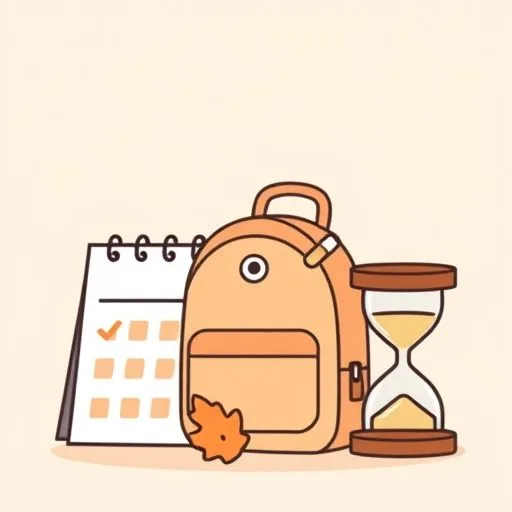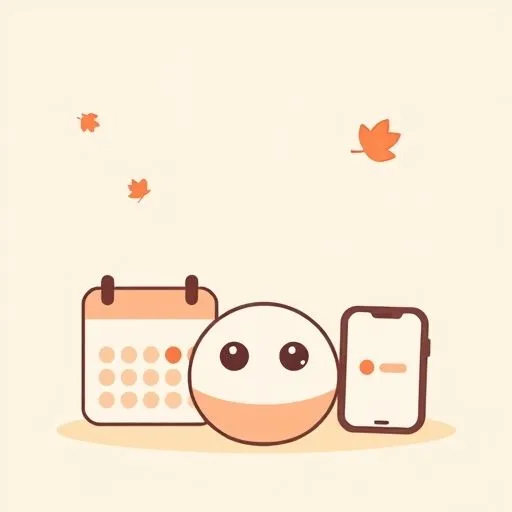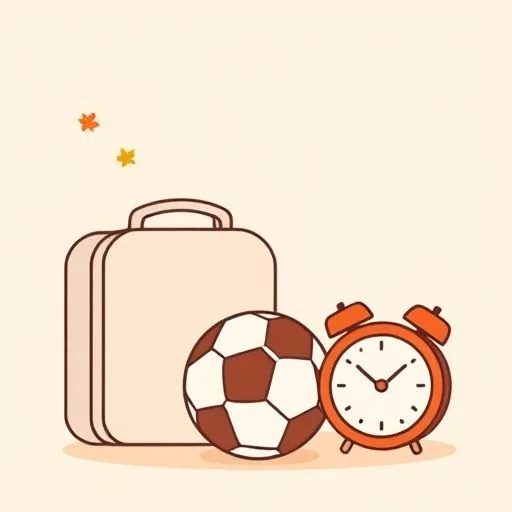
Folks, picture this: crisp 22°C morning here in our neighborhood, just enough sunshine to melt the fog from last night’s worries. I’m sipping my instant coffee while the school bell echoes down the street—kids giggling as they bounce their backpacks along the sidewalk. Then bam! My phone buzzes with news about Workday dropping $1.1 BILLION on an AI company called Sana. Honestly? My first thought wasn’t about spreadsheets or workplace dashboards. It was: “This changes everything for us parents.” Because while the bigwigs talk about “proactive workplace experiences,” we’re out here drowning in permission slips and lunchbox chaos. And guess what? That shiny AI revolution isn’t just for boardrooms—it’s secretly our ticket to slower mornings, sillier family dinners, and more of what actually matters with practical AI parenting tips.
How Can AI Parenting Tips Transform Your Family Time?

Let’s cut through the corporate jargon right now—I’ve spent enough time around data to know smoke from mirrors! Workday’s buying Sana Labs to let AI handle the soul-sucking stuff at work: automating performance reviews, building dashboards, even crafting presentations. Sounds fancy, sure.
But here’s the golden nugget no headline is shouting: when AI takes over repetitive tasks, humans get their superpowers back.
I know, it sounds like boardroom talk, but MIT Sloan even proved generative AI can boost our productivity by nearly 40%—serious stuff! Think about that! A software dev using Copilot sails through tasks 56% faster.
Now zoom into our houses. We parents are drowning in our own version of performance reviews: decoding school emails, tracking dentist appointments, memorizing which days require gym shoes. And just like those overworked managers, when we’re stuck in admin purgatory, we’ve got less heart left for building pillow forts or listening to our kids’ wild theories about cloud shapes.
My girl’s at that age where her backpack straps nearly swallow her whole—early elementary, just when homework folders become a household religion. Last week, I spent 45 minutes untangling a library book reminder while she waited patiently, clutching her rain boots like treasure.
What if AI quietly handled those reminders? Suddenly, 45 minutes reappears for sidewalk chalk masterpieces. That’s not business news—that’s parenting gold with AI parenting tips.
What Are the Best AI Tools for Family Connection?

I won’t lie—I used to side-eye any tech promising to “simplify parenting.” But after seeing how AI streamlines grown-up work (1.3% to 5.4% of work hours saved, according to the St. Louis Fed!), I started playing with micro-moments of magic. No fancy tools, just everyday tech worn smooth by use: voice assistants, smart calendars, even translation apps that feel like superpowers. Here’s what’s blooming in our home:
Mealtime Miracle in 3 Minutes: Any home with japchae knows it’s love in noodle form. But tracking pantry staples? Exhausting. Now, my voice assistant whispers: “Appa, carrots are low—add to list!” Like Sana’s AI agents automating corporate workflows, ours automates grocery prep. Suddenly, I’m not scrambling at 7 a.m.—I’m laughing with my daughter as we fold dumplings, swapping stories about her preschool friend’s pet goldfish. The Canadian in me swaps maple syrup for sugar sometimes (shh!), but the core joy—hands-on connection—is pure.
Permission Slip Slayer: Remember scrambling to sign digital forms before field trips? I set up a simple calendar alert that triggers: “Permission due tomorrow—tap to approve!” It’s laughably simple, but oh man—it saved our morning last week when we’d have otherwise missed the whale-watching trip. Now, instead of panic, we’re pointing at dorsal fins and screaming “agu!” like total goofballs. That’s basically Sana Labs in a nutshell—AI tuned to our family’s rhythm.
Grandma’s Voice, Everywhere: My daughter’s learning Korean from her halmoni in Seoul. Using an AI translator app, we send voice notes: “Halmoni, today I drew a purple dog!” It auto-translates, preserving her giggles. No homework drills—just relationship-building disguised as tech. When she hears halmoni’s voice reply, “My purple-dog artist!”—that’s AI lifting humans, not replacing them. Just like Workday says Sana makes workplaces “more intelligent,” ours makes our little home more connected with AI tools for family.
Why Should AI Not Replace Human Parenting?

Let’s get real: some folks hear “AI in parenting” and imagine robot babysitters. Not in our house! Workday’s CEO called this “reimagining the future of work,” but for us parents, the future looks like more face time, less screen time—for the kids.
See, Sana’s real genius isn’t just automating tasks—it’s freeing humans for human work. Hiring managers get AI-generated dashboards so they can focus on mentoring teams. Similarly, when AI handles my calendar chaos, I’m free to do the work that matters most: watching my daughter build fairy houses from acorns in the park.
Her current obsession? Turning dandelions into “sunshine wands” while debating if squirrels have secret universities. This isn’t downtime—I’m soaking in her wild creativity, the very skill researchers say AI can’t replicate. McKinsey nails it: AI “augments capabilities” but can’t replace imagination.
That’s why in our home, AI tools are strictly my responsibility—not hers. Her job? Exploring. Creating. Getting dirt under her nails.
Because studies prove unstructured play builds future-proof skills no algorithm can touch: empathy, problem-solving, sheer joy. When she struggles to glue popsicle sticks into a rocket ship, I don’t rush in with a solution—I hand her extra glitter and ask, “What’s the biggest dream this ship can carry?” That’s the parenting front door workday can’t buy: the space to wonder together.
Christian wisdom whispers this too: True abundance isn’t in output—it’s in presence. When AI lightens our burden, we’re freed to love radically. To say yes to spontaneous puddle jumps. To sit patiently when she retells her dreams 17 times over miso soup. That’s where resilience grows—not in automated systems, but in shared spaghetti sauce spills with AI parenting tips.
How Can You Start Using AI for Parenting Today?

You’re probably thinking: “Appa, I’m not a tech wizard!”—me neither! I’m just a dad who realized AI isn’t about shiny toys; it’s about practical hope. Start tiny, like I did:
Try This Tomorrow: As you pack lunches, whisper to your phone: “Remind me about soccer practice at 3 p.m.” When the alert chimes, dance with your kid for 60 seconds instead of rushing. That’s 60 seconds of pure presence—stolen back from the grind.
Flip the Script on Screen Time: Use AI-generated story prompts as bedtime springboards! “Tell me a tale where teddy bears surf.” Then, grab flashlights and act it out. Suddenly, screens become launchpads for connection.
Bless Someone Else’s Burden: Share this with a parent friend stuck in email purgatory. Send a voice note saying: “I automated library reminders—want my cheat sheet?” Build your village. That’s Korean jeong, Canadian kindness, and neighbor love all wrapped in one.
When Workday paid $1.1 billion for workplace AI, they weren’t buying efficiency—they were buying back humanity. And that? That’s what we’re fighting for at home too. Every minute AI saves us from admin is a minute we gift back to laughter, to curiosity, to sticky-fingered hugs.
So let’s not fear the bots—let’s make them our quiet allies. Because in the end, the most revolutionary thing we can automate isn’t a task—it’s our own exhaustion.
Let’s automate our exhaustion and double down on those dandelion sunshine wands!
Now if you’ll excuse me—I’ve got a porch to turn into a rocket-ship launchpad. Puddles can wait, but adventures? They’re always on time with AI tools for family.
Source: Workday Pays $1.1 Billion for Sana’s AI-Powered Workplace Tools, Pymnts, 2025-09-16
